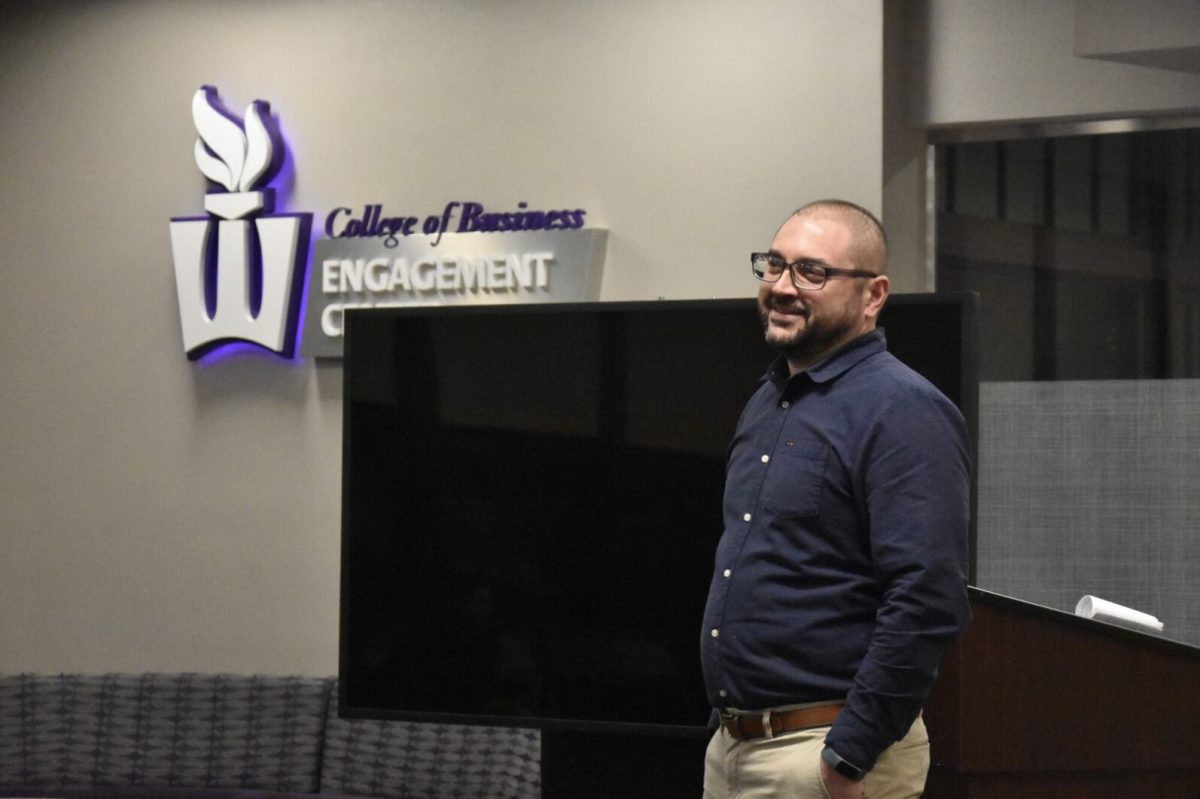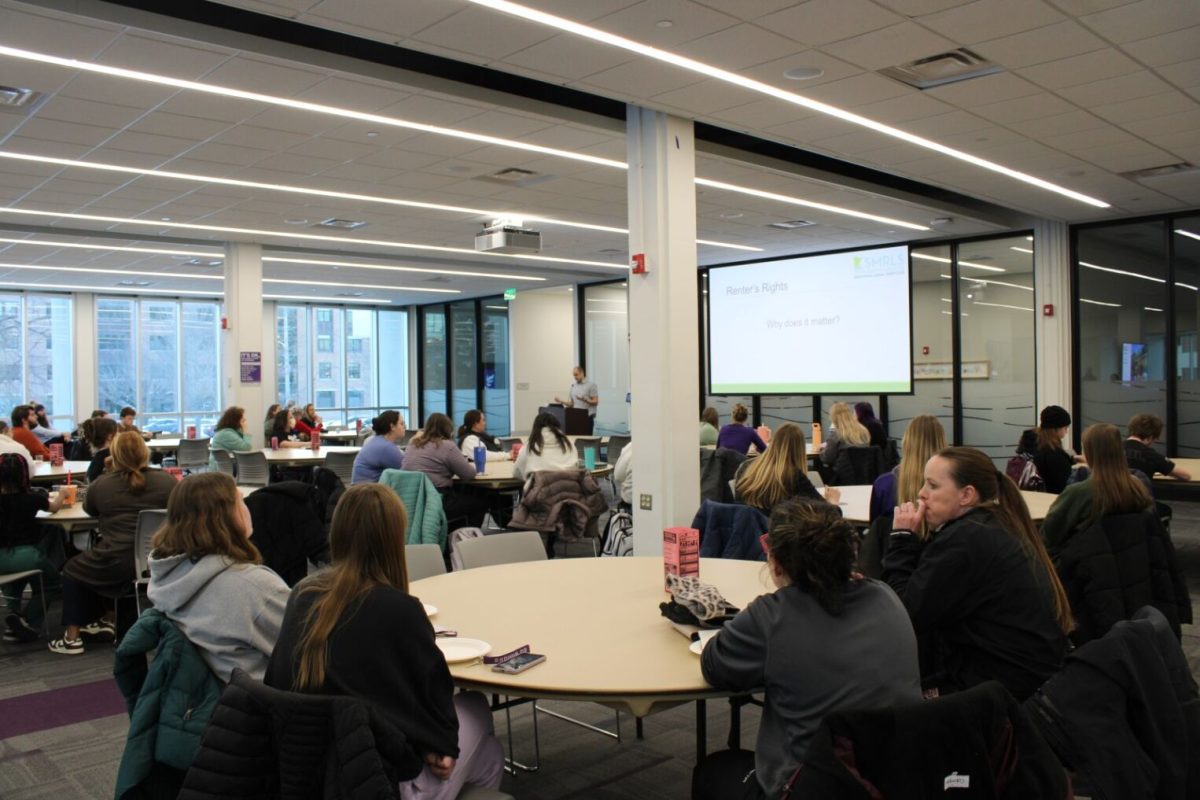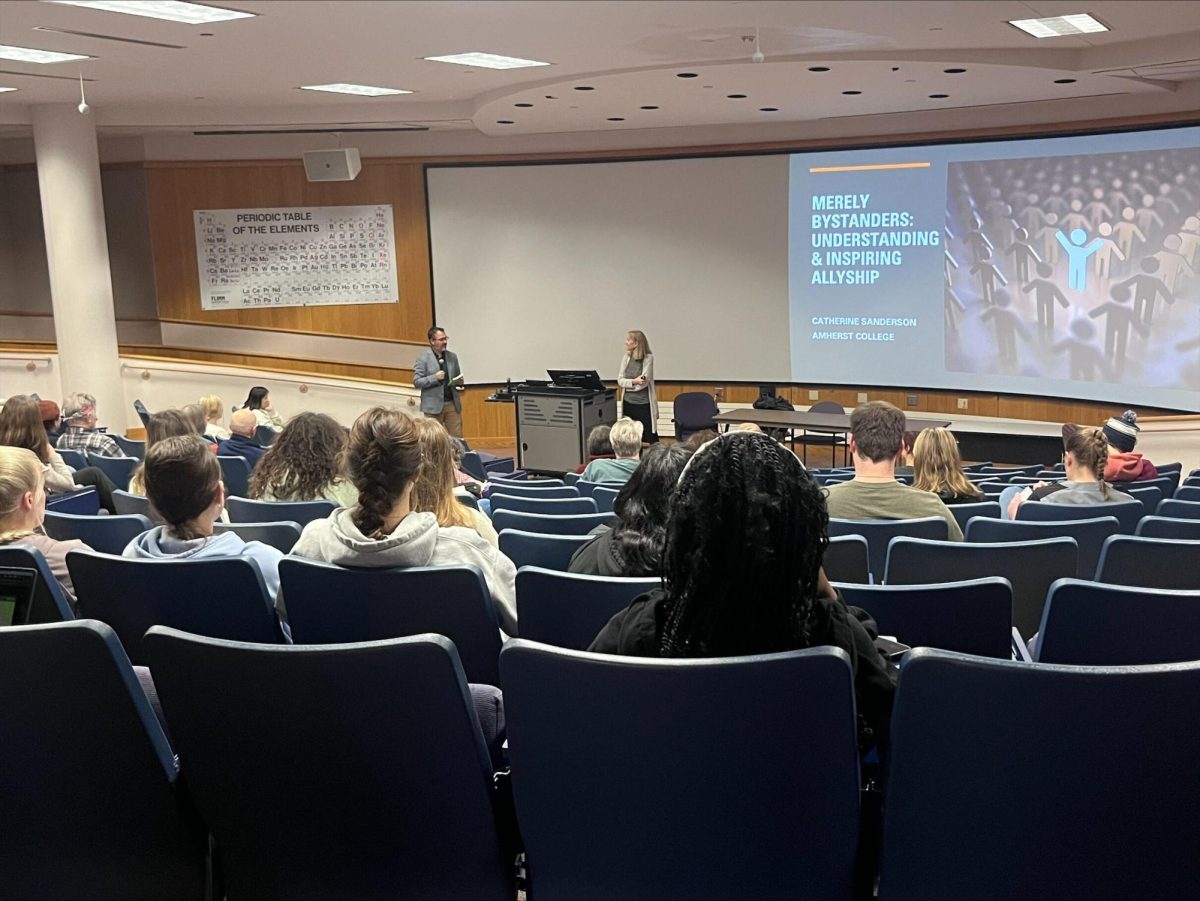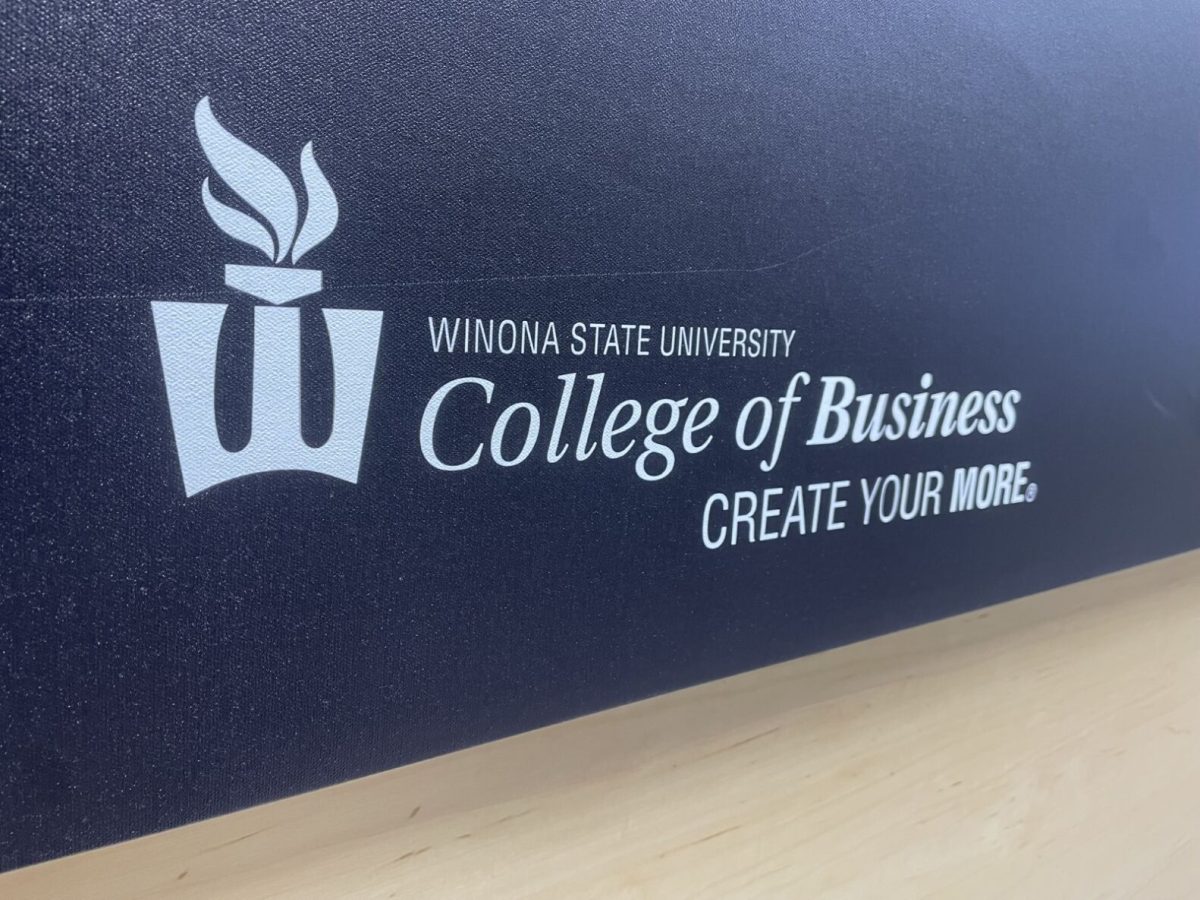On Thursday, October 17, students and community members made their way to the Science Laboratory Center and took their seats in the Miller Auditorium, curious to see an author’s take on her book Why We Act, which is the 2024-2025 Winona State University Common Book. The Common Book is a literary work selected yearly and applied to certain curriculums and classes so that many students may bond over the content and message it delivers.
“We highly encourage students to read the book we pick.” Andrew Higl, a professor in the English department said.
This year’s book was chosen due to how it can be applied to modern issues such as bullying, harassment, racism, and America’s divided demographic in the midst of a heated election year. It is also a continuation of a theme found in previous Common Books, such as The War for Kindness by Jamil Zaki. The theme is one of compassion and acting in the face of misconduct.
After a round of rowdy applause, the crowd welcomed the renowned psychologist, author, and Amherst College professor, Catherine Sanderson, to the floor. Sanderson spoke with passion on the subject of psychology and touched the audience through her use of supporting anecdotes and impactful storytelling.
She had never planned to write Why We Act; in fact, it wasn’t on her mind at all until one fateful night in 2017 when she received a phone call from her worried son. A student in her son’s dorm had suffered a bad fall while drinking and was passed out for 19 hours before anyone called 911, but by the time his friends dialed in, it was too late. The young man passed away due to the inaction of those around him.
“As a teacher and mother of three, that broke my heart.” Sanderson said, reflecting on the emotions she felt that night.
She began to ask why exactly this inaction happens in the first place and why people’s brains are wired to take a step back from troubling situations. According to Sanderson, there are three things at the root of this behavior.
The first is ambiguity, meaning a person cannot tell if a situation is serious or meant to be a joke.
“In ambiguous situations we don’t know how to act, so we look to see what people around us are doing. If no one does anything, we won’t either,” Sanderson said.
The second is responsibility, as a person says to themselves ‘it’s not my problem or place to deal with the aggressor or issue’. Lastly was the fact that we fear the consequences of speaking up because we are hardwired to avoid social rejection because it hurts us. Sanderson used one striking study as a supporting example.
“Rejection was found to activate the same part of the brain that feels physical pain, so we are hardwired as humans to avoid that pain.” Sanderson said.
To close her speech, she described what we can do to overcome our brain’s defense, including speaking up for others, fostering empathy within ourselves, and encouraging dissent. As best encapsulated by Martin Luther King Jr.‘s quote, ‘Ultimate tragedy is not the oppression and cruelty by the bad people but the silence over that by the good people,’ speaking out can change someone’s life and even the course of history.
With the keynote concluded, many flocked to purchase their own copy of Sanderson’s book and have it signed. The audience received the event well as constructive conversations, and people carrying brand new books trailed down the hallways of the SLC. Madeleine Avilia, who was responsible for writing the teaching packet on the book speaks about her thoughts on the book.
“I really recommend this book, it is never boring and you can really feel for her personality by the way she speaks,” Avilia said. “I hope because of this book people won’t be silent.”
While the last students and staff intermingled in the lecture hall, others asked Sanderson what the most rewarding part of writing and speaking on this issue is.
She responded with a smile, “I had a man come up and say to me, ‘Because of your book, I hope that my kids will never be the ones to stay silent. The most rewarding part is seeing change come about’.” Sanderson said,










































